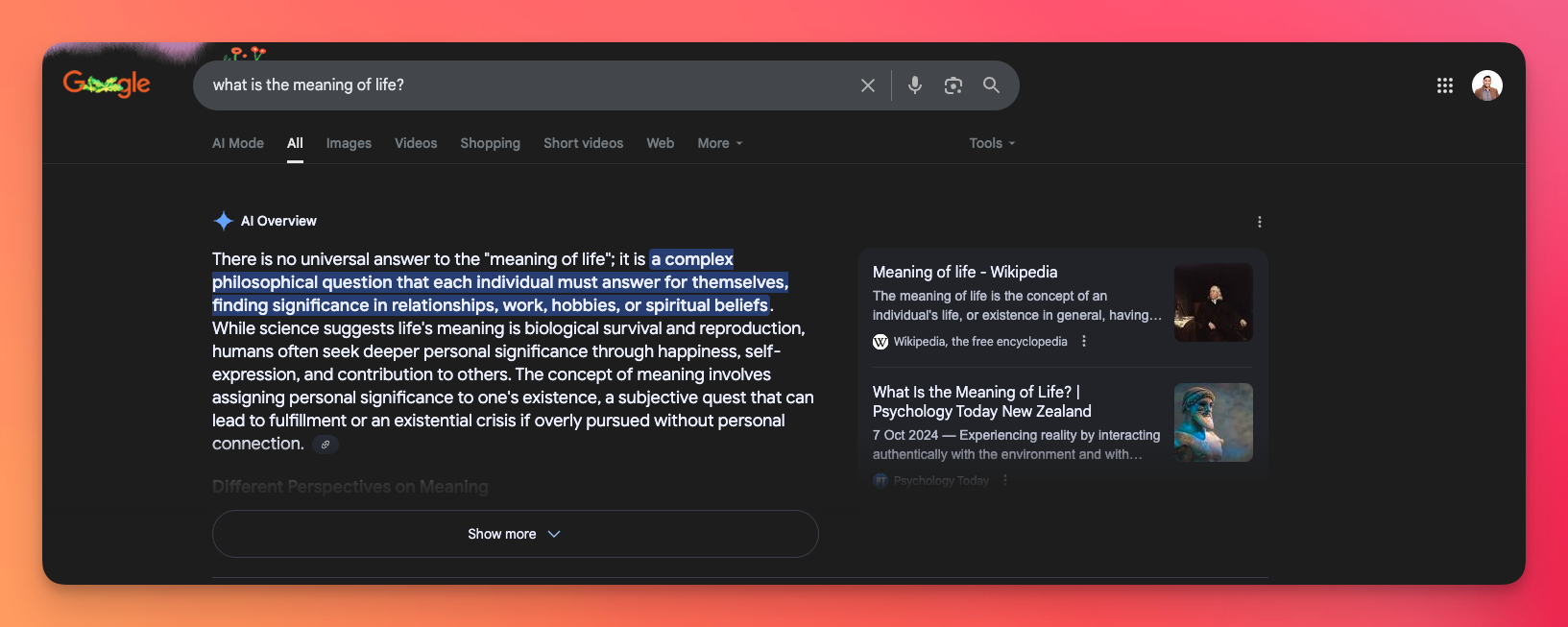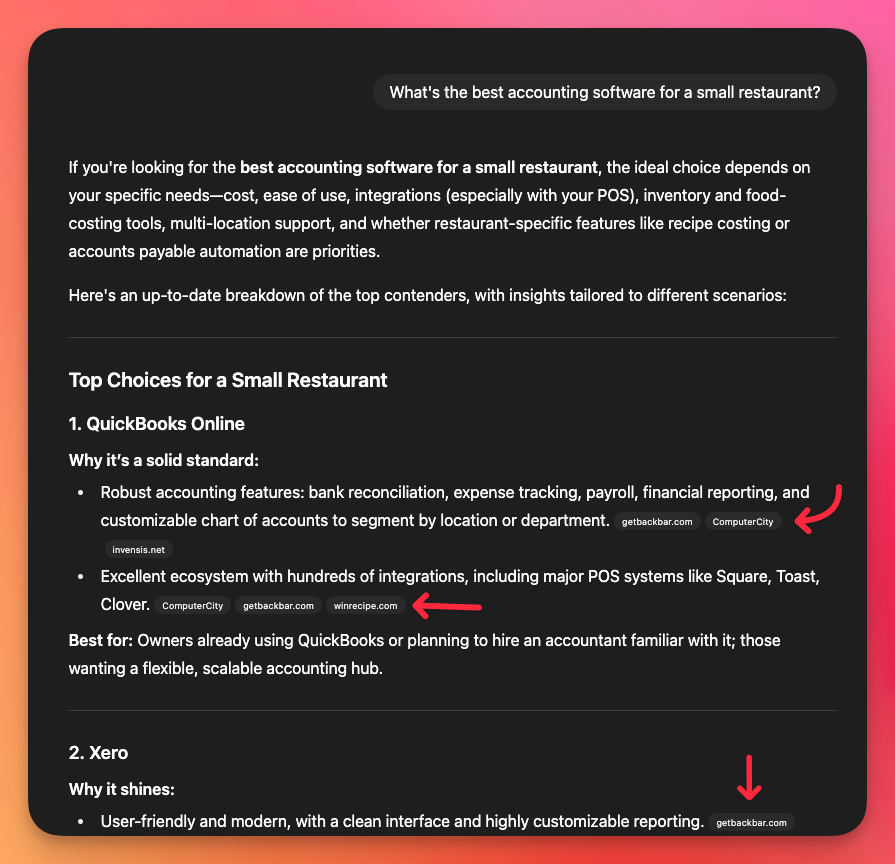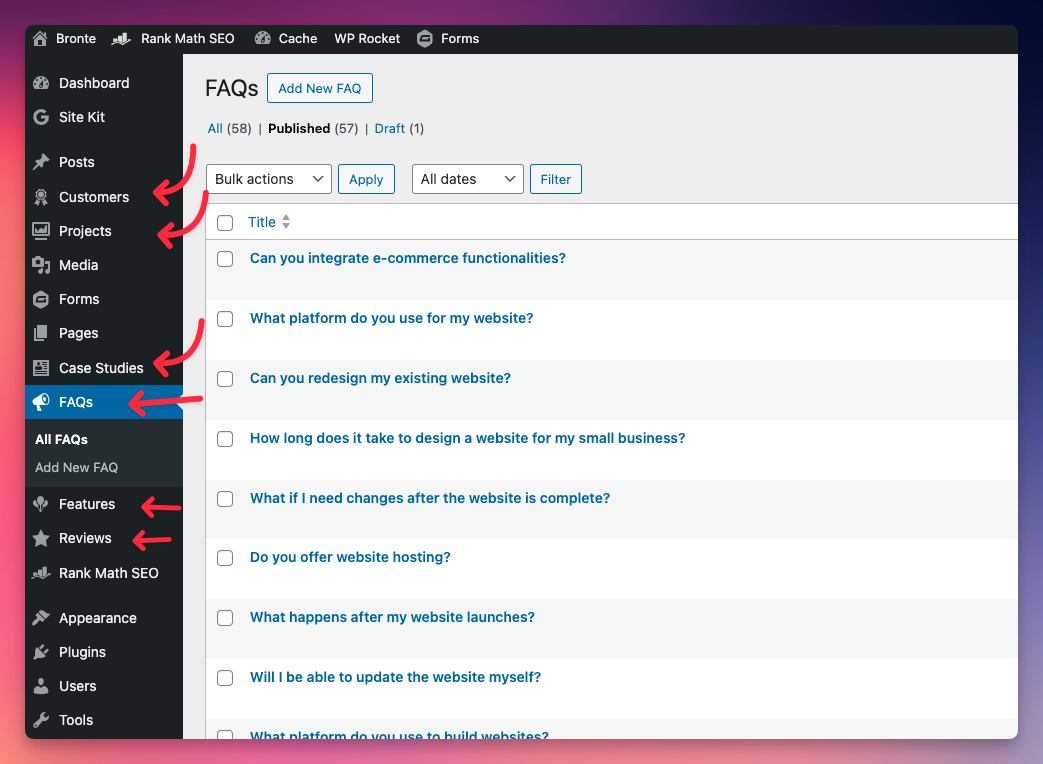Overview
Search is changing faster than ever. ChatGPT, Google’s AI answers, and other AI tools are becoming the new way people find businesses—but most websites are completely unprepared. If your site was built with popular page builders, you might already be invisible to the future of search.
This guide reveals why AI search engines ignore most websites, the hidden problems with drag-and-drop builders, and how smart business owners are future-proofing their sites with a better approach. You’ll discover real examples, practical solutions, and exactly what to do next.
What you’ll learn:
- Why AI tools skip over most business websites
- The hidden costs of page builder websites
- How properly structured sites dominate AI search results
- A real restaurant example that shows the difference
- The simple fix that puts you ahead of 90% of competitors
The Search Revolution That’s Happening Right Now
You’ve probably noticed something different about search lately. Ask ChatGPT or Google a question, and instead of getting a list of links, you get a detailed answer that pulls information from multiple sources. This isn’t just a cool new feature—it’s completely changing how people find businesses online.

The question every smart business owner should be asking right now is: “Will my website show up in these AI-powered answers?”
If your site is built the right way, the answer is yes. If it’s not… well, you might be invisible to the future of search.
What Generative Engine Optimisation Really Means for Your Business
Let’s say someone asks ChatGPT, “What’s the best accounting software for a small restaurant?” Instead of showing them search results, it gives them a comprehensive answer, complete with recommendations and reasons why.

This new way of searching has a fancy name: Generative Engine Optimisation (or GEO for short). But here’s what it really means for your business: instead of competing for clicks, you’re now competing to be the trusted source that AI tools quote when answering questions.
And here’s the kicker—AI tools are incredibly picky about which websites they trust and reference. They love websites that are well-organised, clearly structured, and easy to understand.
The Page Builder Trap: Why Most Websites Are Failing
Here’s something we see all the time: business owners get sold on flashy page builders because they look easy to use. “Just drag and drop!” they say. “Anyone can build a website!”
But here’s what they don’t tell you.
The Hidden Problems with Drag-and-Drop Builders
Your website becomes a mess behind the scenes. All those drag-and-drop elements create tangled, confusing code that even AI tools can’t make sense of.
Everything breaks when you try to update it. One small change and suddenly your entire layout is wonky. We can’t count how many times clients have called us saying, “I just tried to update one paragraph and now my whole page looks terrible.”
Your site runs like molasses. All that extra code makes your website slow, which frustrates visitors and hurts your search rankings.
AI tools ignore you completely. Because your content is buried in a jumbled mess of code, AI engines can’t figure out what your website is actually about.
Why This Matters More Than Ever
It’s like having a beautifully organised filing cabinet on the outside, but when you open the drawers, everything is just thrown in randomly. Good luck finding anything useful in there.
That’s exactly how AI tools see most websites built with page builders—a confusing mess where they can’t find the information they need to reference your business.
The Smart Alternative: Websites That Actually Make Sense
Advanced Custom Fields (ACF) is like having a perfectly organised filing system for your website. Instead of throwing everything together haphazardly, it creates a logical structure where everything has its place. While you can’t build your site by just installing the ACF plugin, using that as the backbone rather then a page builder like Divi is the way to go
Think of it this way:
Clear Content Organisation
Your content has a clear purpose. When you write about your services, that information lives in a “Services” section that’s clearly labeled and organised. When you share customer stories, they go in a “Testimonials” section.
AI tools love this clarity—they can easily understand what each piece of content is about and reference it accurately.

Simple Updates That Actually Work
Updates are actually simple. Need to change your phone number? You update it in one place, and it changes everywhere on your site. Want to add a new service? You fill out a simple form with all the relevant details, and your website automatically displays it consistently with your other services.
Performance That Doesn’t Frustrate Users
Everything loads fast. Because the code is clean and organised, your website runs smoothly. No more waiting 10 seconds for a page to load.
Speaking AI’s Language
You’re ready for AI search. When your content is properly structured, AI tools can easily understand and reference your information. That means when someone asks an AI tool about services like yours, you’re more likely to be mentioned in the answer.
Real-World Example: How Structure Wins
Let’s say you own a family restaurant. When someone asks an AI tool, “What’s a good family restaurant in [your city] with outdoor seating and gluten-free options?” you want to be mentioned in that answer.
The Structured Website Advantage
With a properly organised website, the AI tool can easily find and understand:
- You’re a family restaurant (clearly indicated in your business type)
- You have outdoor seating (listed in your amenities section)
- You offer gluten-free options (highlighted in your menu details)
The Page Builder Problem
With a messy page builder site? The AI tool might see a wall of mixed-up text and images but can’t tell what kind of restaurant you are or what you offer. You get skipped over entirely.
The restaurant with the organised website gets mentioned. The one with the messy site doesn’t. It’s that simple.
What This Actually Means for Your Business
Let’s talk real benefits in plain English:
More Discovery, Less Competition
More people discover your business. As AI-powered search becomes more popular (and it’s happening fast), well-structured websites get referenced more often. That means more potential customers hearing about you, even when they weren’t specifically looking for your business.
No More Website Headaches
You stop fighting with your website. No more calling us in a panic because you “broke something” trying to update your hours. No more avoiding website updates because you’re scared of what might happen.
A Website That Actually Helps
Your website actually helps your business grow. Instead of being a source of frustration, your website becomes a reliable tool that consistently brings in new customers and makes your business look professional.
Future-Proof Investment
You’re not left behind. While your competitors struggle with clunky websites that AI tools ignore, you’re already positioned for the future of search.
The Bottom Line: Your Website Should Work for You
Technology keeps changing, but one thing stays the same: businesses succeed when they make it easy for customers to find and understand them. That’s exactly what a well-built website does.
Advanced Custom Fields isn’t just about being ready for AI search (though that’s a nice bonus). It’s about having a website that makes sense, works smoothly, and grows with your business.
While other businesses scramble to rebuild their websites every few years to keep up with new technology, you’ll have a solid foundation that adapts and improves over time.
Ready to Future-Proof Your Website?
The AI search revolution is happening whether we’re ready or not. The question is: will your website be part of it, or will it be left behind?
Ready to stop fighting with your website and start using it to grow your business? Let’s have a conversation about what a properly structured website could do for you. No tech jargon, no overwhelming details—just a straightforward chat about your business goals and how your website can help you achieve them.






